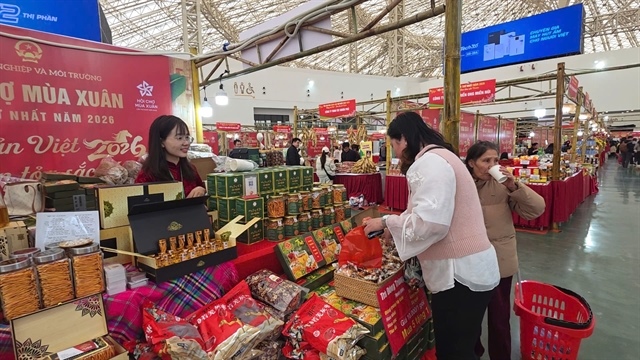Electronic payments innovation to change the future of commerce in Vietnam
Electronic payments innovation to change the future of commerce in Vietnam
It’s very common to hear people discuss various countries’ economies as being “built on small businesses”, however, nowhere is this more true than in Vietnam.
After the doi moi reforms of the late 1980s, the population took to the idea of enterprise almost immediately, creating a large number of merchants of differing scale and business offerings in a very short space of time. Today, small businesses are as much a part of the culture of Vietnam as they are a part of the economy.
With an estimated 600,000 small and medium d businesses in Vietnam today, it’s clear that operations of this kind provide opportunities for many Vietnamese people. However, this also contributes to the economy’s reliance on physical cash, as a large number of these smaller operations simply do not have the infrastructure or capital necessary to set up a point-of-sale (POS) system to receive funds electronically from cards.
Because of these barriers to entry, merchants around the country are unable to access the many benefits of electronic transactions, including increased customer traffic and customer satisfaction, guaranteed payment, fraud protection, simplified accounting, better cash flow management, and decreased security risks associated with counting, storing, handling and transporting cash.
Additionally, research conducted for Visa by Moody's Analytics shows that the growth in the use of electronic payment products in Vietnam added $1.2 billion (VND25 trillion) to the GDP of Vietnam between 2008 and 2012. There’s no denying the benefits of electronic payments here, nor the importance of maintaining an open marketplace to encourage competition and innovation within the industry. In addition, according to World Bank data, 79 per cent of Vietnamese do not currently have an account at a formal financial institution. Imagine the benefits to the economy if we could connect them with electronic payments.
The prospects of increasing electronic payments in Vietnam through new, innovative solutions such as mPOS, or Mobile Point-of-Sale, can vastly increase the number of merchants in Vietnam that can receive card payments, and in turn, continue to support local economic growth.
Instead of needing a traditional POS terminal to receive payments from cards, mPOS uses a small payment card reader that can be plugged into a smartphone. Once configured, the mPOS device allows merchants to accept electronic payments securely and efficiently.
Visa recently partnered with VietinBank and the State Bank of Vietnam (SBV) to launch mPOS for the first time in Vietnam. We are very pleased to play a part in this solution that will help overcome traditional payment infrastructure constraints and increase the use of electronic payments, helping businesses to grow, expanding the economy and supporting the SBV’s goal of reducing the country’s reliance on physical cash through its “non-cash decree”.
For businesses, the logistical advantages of this are twofold. First, it costs significantly less than setting up a traditional POS system, which markedly lowers the barriers to entry for hundreds of thousands of businesses across Vietnam. With smartphone penetration in Vietnam growing rapidly, and the cost of handsets continually decreasing, many merchants already have much of the infrastructure necessary for mPOS—otherwise they’re able to purchase it for a couple of million dong.
Second, the device can be used through either the phone’s 3G internet connection, or through wi-fi, giving the device higher mobility than a traditional POS terminal. This is particularly important for smaller merchants, such as stall operators at markets who use temporary setups, as well as for business operators that offer “to your door” services for customers.
A vastly increased number of smaller merchants around the country, selling anything from food, to coffee, to clothes, will now be able to quickly and cost-effectively set up a POS system for their business, while at the same time being able to offer customers the convenience and security of paying with a Visa card. mPOS solutions also allow large volume businesses to close in on sales faster and improve efficiency.
Given the impending implementation of the SBV’s “non-cash decree”, being able to accept credit and debit card payments will start to become more and more of a necessity for businesses in order to remain viable. Elsewhere in the world, the growing popularity of mPOS acceptance solutions, especially among micro and small merchants, is helping to drive the migration from cash to electronic payments. From 2011 to 2012, the number of mPOS in operation worldwide increased 111 per cent, from 4.5 million to 9.5 million, and it is expected to reach 38 million in 2017.
With mPOS, businesses in Vietnam have a new tool to help them on the path towards economic maturity.
vir





















